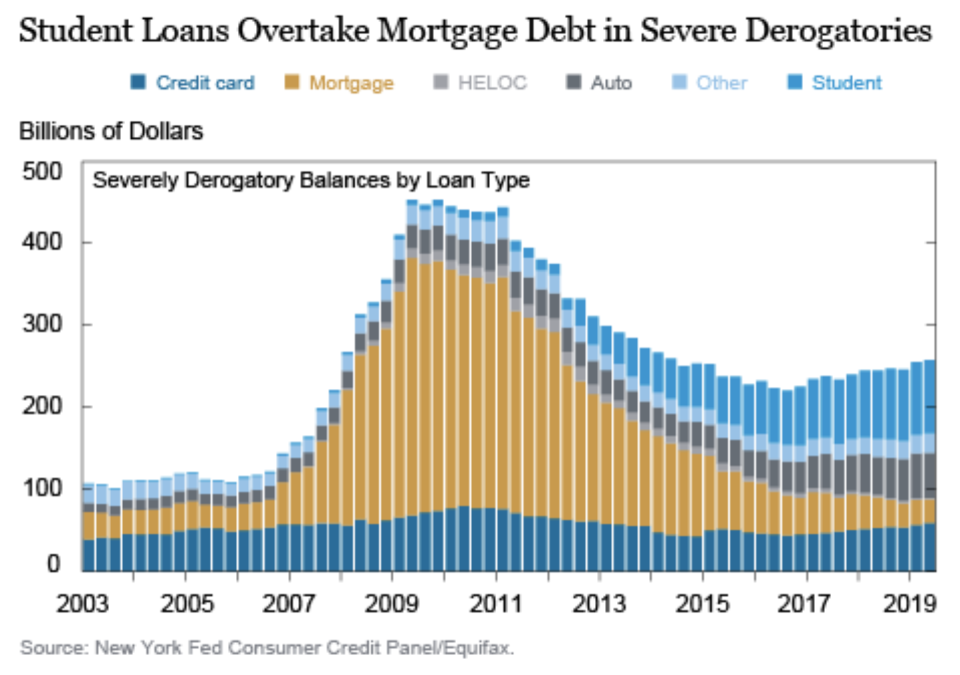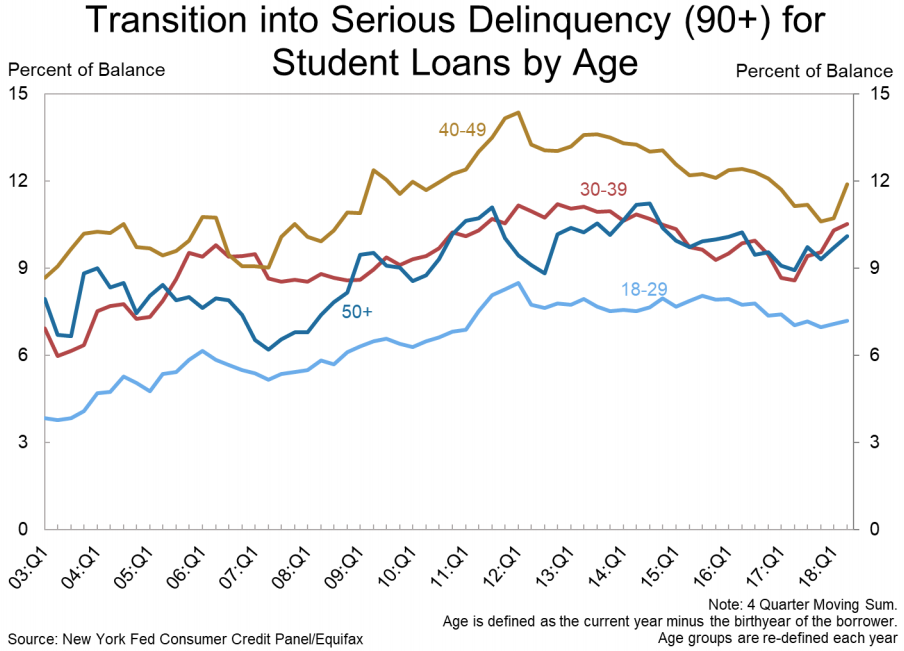‘I’m working until I’m 75’: Factory worker describes family’s student debt nightmare
Student debt isn’t just a student problem. Across the U.S., many parents also struggle with the burden of student loans.
A recent survey by Freedom Debt Relief found that 37% of 1,506 American adults said their children’s college education cost has made them feel financially overwhelmed. And 20% said that the stress has contributed to mental or emotional health issues.
More than 40% said education costs impacted their retirement plan, with 31% indicating that they had “given up retiring when they initially desired.”
Yahoo Finance spoke with one parent in a particularly difficult student loan situation: a 60-year-old factory worker from Scranton, Pa., who had cosigned a loan for his son. (The man, whom we’ll call Frank, asked for anonymity to protect his son.)

‘It’s not nice for a hard-working middle class family’
Frank’s student debt experience began when his son got into a college. As a “middle-class working family” that brings in about $75,000 a year, Frank and his son started borrowing.
The son fell seriously ill after attending the school for one-and-a-half years and dropped out. After his health improved, the son decided to resume his education at a different school. All the while, both father and son continued to borrow.
The expenses began mounting: The family had a refinanced mortgage and credit card debt, as well as home and car insurance to pay. On top of that, they had recurring medical bills. And there was the possibility of more kids going to college.
“[With] some of my bills, I was in no position to barely help myself,” Frank said.

Eventually, the son dropped out of the second school due to a combination of illness and circumstance. But the lenders were at the door: Frank’s son owed over $100,000 in federal and private student loans.
“So here we are, he's no longer in school, Sallie Mae and everyone else want their money,” Frank said. “Without a degree, and without going to school full-time, there's no more delaying. No chance at consolidation, nothing.”
Frank’s credit score suffered since he used his credit cards to pay for the son’s college expenses. And each loan he took out came with a higher interest rate — from 9% to 12% — worsening the situation further. Frank began taking money from his 401k, sacrificing his own retirement fund to alleviate the student debt pressure.
He described the burden as both financial and emotional. The son is “so depressed and [we] are heartbroken for him,” he said. But “I figure now I'm working until I'm 75. ... It's not nice for a hard-working middle class family.”

‘Go to a school that you can afford’
It’s not just parents: Relatives are also being drawn into student debt, according to Tayne Law Group Founder Leslie H. Tayne.
“I also see plenty of people who co-sign loans for other family members thinking they're trying to do the right thing and help them with their education,” Tayne, drawing on experience in New York and Florida, told Yahoo Finance. “And that is uncles, cousins, friends, or relatives or boyfriend, girlfriend, things like that. And those are people who really have their heart in the right place, and they're trying to help out.”
While Tayne has sympathy for family members in tricky situations like Frank, she emphasized that sometime parents have to avoid going into debt to fund a child’s college.
“Student loans are not predatory,” she said. “They're not coming after you to give you the loan — you're going to them because you want to go to a school you can't afford. And by making the choice to go to a school you can't afford, you have to borrow money. There are lots of options to go to a school that you can afford.”
—
Aarthi is a writer for Yahoo Finance. Follow her on Twitter @aarthiswami.
Read more:
'The power of this is massive': Student debt help could be on the way with new bill
‘I was misled’: Public school teacher tells Congress about student debt nightmare
Weill Cornell makes medical school free for qualifying students
New Mexico is trying to make college free with 'an absolute game-changer'
Read the latest financial and business news from Yahoo Finance
Follow Yahoo Finance on Twitter, Facebook, Instagram, Flipboard, SmartNews, LinkedIn, YouTube, and reddit.
